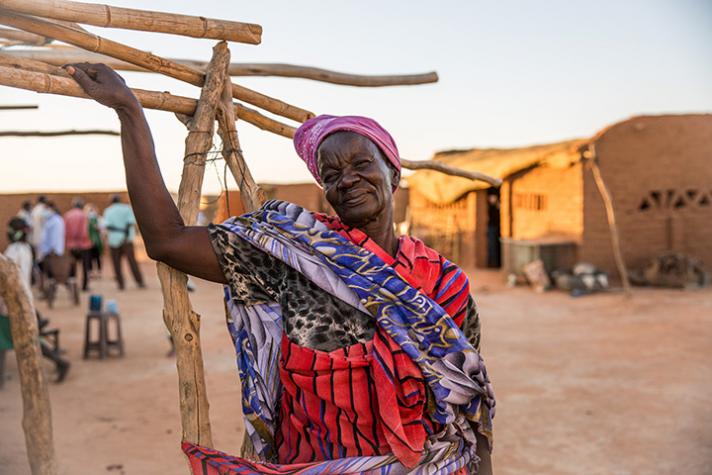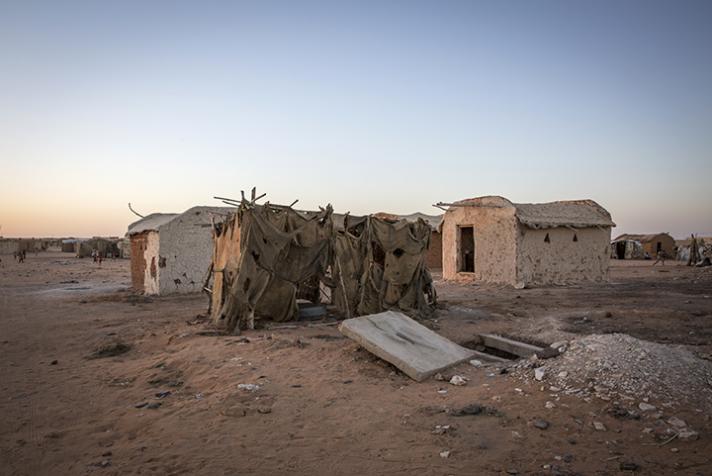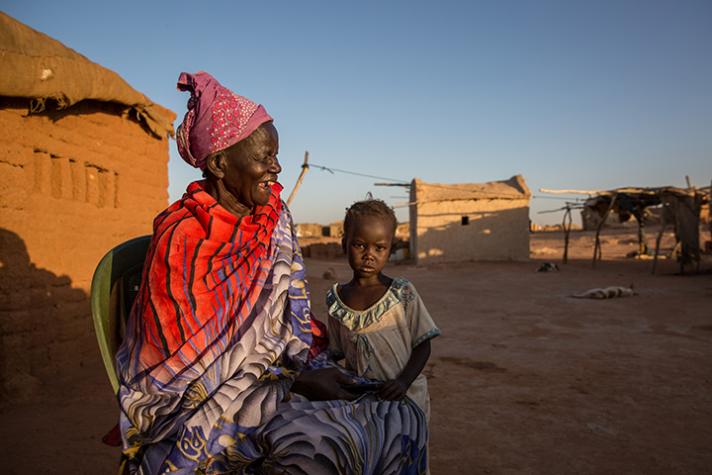South Sudan is facing one of the world’s worst humanitarian crises, with thousands of people living in famine-like conditions. In addition, more than 2 million South Sudanese are living as refugees in neighbouring countries like Sudan.
Meet Apuk Bak, a leader in a South Sudanese refugee community in Khartoum, Sudan. After years of displacement, she is still in limbo. With EU humanitarian funding, the Norwegian Refugee Council (NRC) provides cash and legal assistance for South Sudanese refugees like Apouk.
Even though she has lived in a displacement camp for the past 5 years with little food and water, 68-year-old Apuk Bak remains selfless. She is a mother, a grandmother and a women’s leader in the South Sudanese refugee community on the outskirts of Khartoum, the capital of Sudan.
“When I close my eyes to think of a wish, I only dream of serving my community and my family,” Apuk says.
Following South Sudan’s independence in 2011, people of southern Sudanese heritage gained de facto citizenship in their new country. But they automatically lost their rights as Sudanese citizens.
Many, like Apuk, were excited to go to a new nation, but it became a paradise lost. War came to South Sudan in 2013 and the temporary departure sites on the outskirts of Khartoum grew and became informal settlements for refugees.
Apuk Bak inside the informal settlement. © Ingebjørg Kårstad/NRC
Now, 10 years after South Sudan’s independence, displaced people still live with uncertainty in Sudan.
Stripped of citizenship and stigmatised, those in the informal settlements have been nearly forgotten amid Sudan's revolution and economic challenges. The Transitional Government of Sudan hasn’t brought up a solution for them.
Many people in the displacement sites lack ID cards or birth certificates because of their uncertain legal status. This means they are more susceptible to the financial shocks ripping through Sudan. More than 250,000 people are experiencing extreme food shortages in Khartoum.
Helping refugees access food
It gets harder by the day for refugee families to secure food. Apuk, along with almost 6,000 other refugee and internally-displaced families in Khartoum and South Kordufan, receives cash-for-food from the Norwegian Refugee Council (NRC), thanks to EU humanitarian support.
The programme helps refugees buy food – giving priority to households at risk of malnutrition which include pregnant or breastfeeding women, families with more than 3 young children, and people who have a chronic illness.
Since the conditions for people residing outside the camps are not much better, over 1,200 local families are also receiving aid.
Some of the makeshift homes inside the informal settlement site. © Ingebjørg Kårstad/NRC
From 2010 to 2013, the UN Refugee Agency (UNHCR) set up a voluntary repatriation programme for southern Sudanese people living in Khartoum to travel to their new country. More than 200,000 travelled to assembly points for their journey to a new country.
From 2010 to 2013, around 70,000 people gathered at assembly points and were transferred to South Sudan by air and bus, according to UNHCR. But because there were so many who wanted to relocate, the process took years. And in 2013, South Sudan’s conflict left people like Apuk stranded because it was not safe to travel.
The departure points across Khartoum have gradually evolved into 9 displacement sites where South Sudanese people now live as refugees in poor conditions, receiving irregular aid. The departure points went from sites of hope for a new beginning, to despair and endless waiting.
Living as a refugee
South Sudanese refugees have lived in these camps for years, and their struggle to gain proper identification prevents them from joining the formal labour market.
Many have been unable to continue their education and have been pushed to work in Sudan’s unregulated shadow economy. Those who do cross these obstacles are left to battle with social stigma when applying for jobs.
With limited jobs available, men in the settlement travel to distant locations in Khartoum to find daily labour. The risk of exploitation and sub-standard working conditions is great.
“We cannot just sit around waiting to be handed food,” Apuk says. “Our children will become weak and malnourished. We have to find a way to feed the kids.”
Apuk believes it’s important to keep the cash she receives from running out. She plans to spend a portion of it on goods to sell inside the camp to earn a little income.
Apuk Bak pictured here with one of her grandchildren. © Ingebjørg Kårstad/NRC.
Currently, NRC is providing legal support for refugees in the open areas so they can join the formal labour market and get better access to education.
Khamisa, a 70-year-old community leader in the open areas, wants to make baskets. “If the women get the proper handicraft training, we can work together to produce in bulk and sell in the market,” she says.
“If I’d had the proper education, I would never have stayed here. I would have loved to be of real value to my community outside of this complicated situation.”
Story by Rawan Kara, Norwegian Refugee Council (NRC).
Main picture: Apuk Bak is determined to help her community. © Ingebjørg Kårstad/NRC.
Publication date: 19/10/2021




